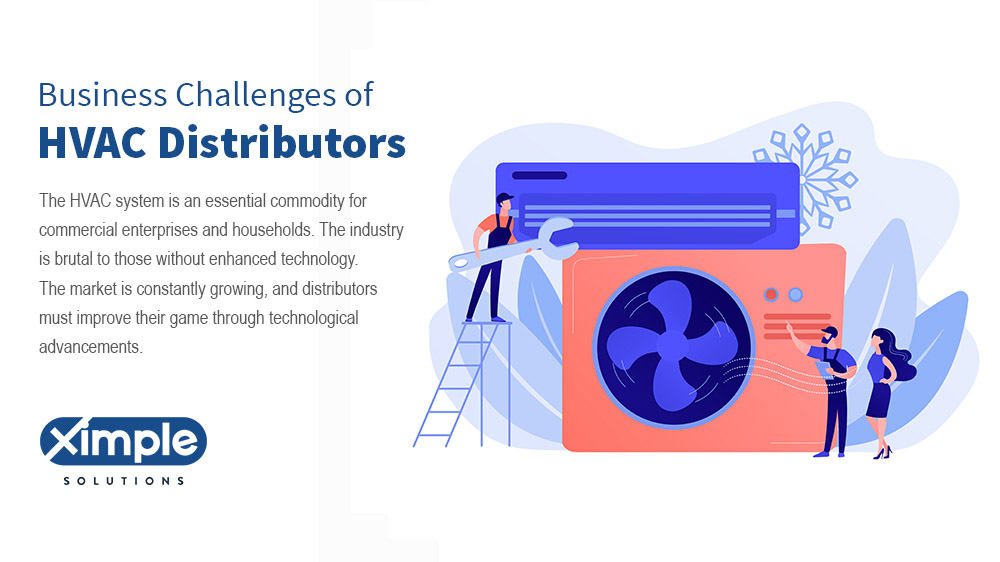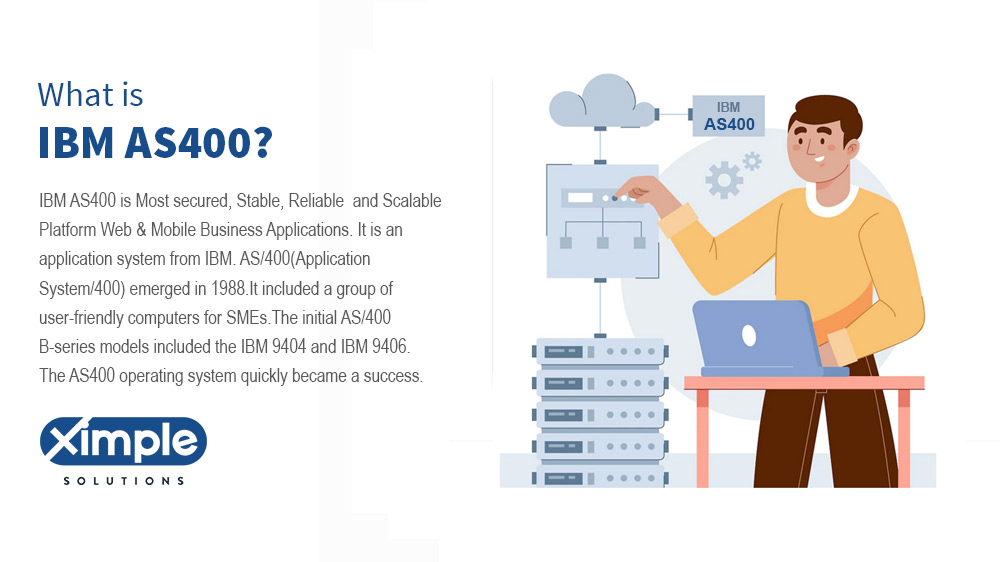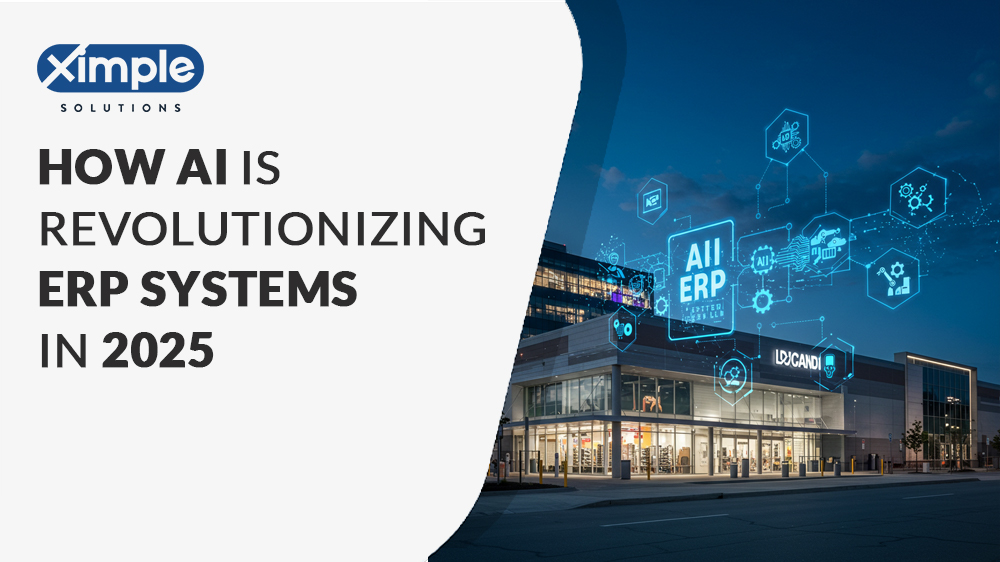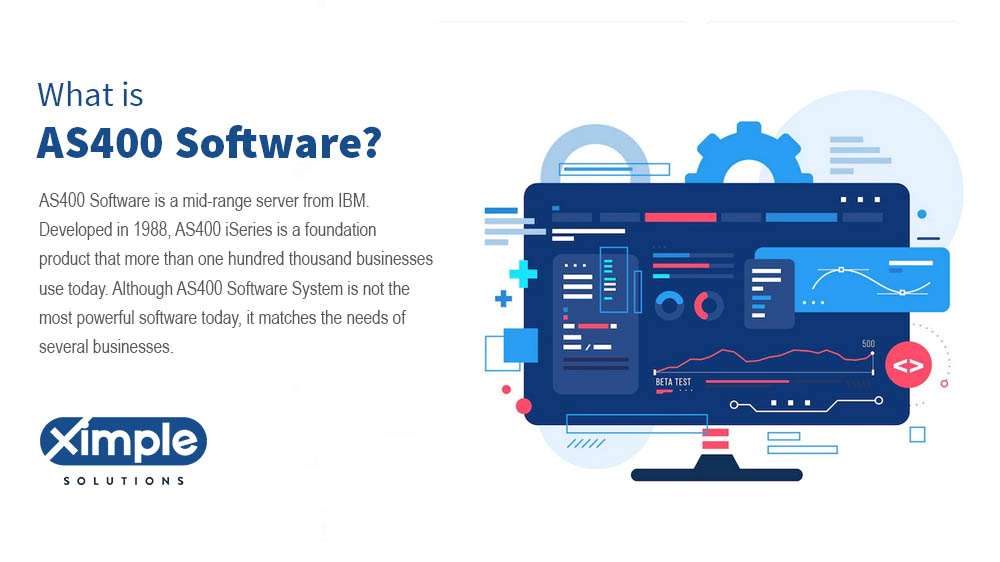HVAC Software for Distributors

This article is primarily intended for HVAC distributors who are facing business challenges and want to improve their efficiency through technological advancements. It provides information on the benefits of ERP software for HVAC distributors and the specific features and criteria to consider when choosing an ERP system. It also covers the implementation process and the training and support needs for using an ERP system in the HVAC industry.
HVAC Distributors’ Business Challenges
HVAC software is an essential commodity for commercial enterprises and households. The industry is brutal to those without enhanced technology. The market is constantly growing, and distributors must improve their game through technological advancements.
ERP software is one area that can help industry players. HVAC distributors need ERP software to maintain stable performance at the top.

Reasons for ERP Software Needs for HVAC Distributors
For HVAC distributors, investing in ERP Software has many benefits.
Improving Introduction to Efficiency
The ERP system is essential for boosting the efficiency of the HVAC distribution system. The system can save lots of time for you, especially in data management and analysis. Big data is an emerging concept in managing systems such as the HVAC. The HVAC software will boost the efficiency of your team.
The HVAC software solution can reduce administrative efforts and time by a significant percentage. You don’t always have to be available for double administrative work. With the ERP software for HVAC, you’ll avoid unnecessary paperwork and double data processing. Therefore, you’ll enhance your efficiency.
Develop a Centralized Structure
HVAC distributors need ERP software to create an under-one-roof structure. A centralized framework helps your business by improving efficiency. HVAC software allows your enterprise to visualize the daily processes fully. For instance, distributors can access information from different subsystems.
Besides, companies using the ERP HVAC field service software can streamline the processes by identifying coordinated issues within the system. For instance, we can easily find a field-related problem affecting administrative functions. Another advantage is that you can easily manage coordinated systems. This encourages an adequate support system to identify the right processes.
Real-Time Management System and Information
The ERP software for HVAC provides real-time data for the system’s flow process. The HVAC software structure can provide instant information by connecting administrative and practical functions. For instance, you don’t need to travel to the field to access documentation and reports. Instead, you can sit in your office and receive HVAC updates through the ERP system with one click. Besides, HVAC distributors can send real-time notifications that can reduce the risks of errors within the process.
Real-time technology is also essential when you need to plan the workflow. An example is the accurate scheduling of processes by directing your workers to make appropriate decisions that ensure a smooth-running system. One problem with HVAC is that distributors may not identify obstacles within their frameworks. Besides, outdated data creates risks in decisions. However, through the HVAC software, you can receive live updates on the current bottlenecks. This creates a quick path for finding solutions to these problems.
Improving the Customer Relationship Management (CRM)
While our main intention is to improve the efficiency of the HVAC system, the ERP is also beneficial for your clients. The primary purpose of installing HVAC software is to improve customer satisfaction. Through this system, the business will boost how you interact with the consumers.
The Penta Enterprise HVAC Contractor ERP will help your team to focus on building long-term customer support service through accurate and faster customer feedback. Automating the HVAC customer support using the ERP software encourages the business to meet client demands. The ERP HVAC framework can accurately predict consumer needs through information processing while finding the CRM challenges.
Top ERP Software Features for HVAC Distributors
ERP systems have many features that are important for HVAC distributors.
Customer management
You can use the ERP as a CRM system. The HVAC software is essential in reporting clients’ usability problems. They can write their issues through a chatbot without directly interacting with the support. You can also monitor their contact details, loyalty processes, and the problems they regularly experience.
For instance, HVAC software is necessary for identifying their service history. The system can also update consumers on any changes within the business processes. For example, the software can set reminders on installation schedules.
Finance, Accounting, and Invoicing
Finance and accounting management also depend on the HVAC software. Apart from invoices, HVAC distributors need this framework to identify the financials. The ERP is essential for identifying automatic payment reminders, tracking payment processes, and supply chain systems.
Scheduling
Process scheduling is easy when you use an ERP system. Being in control of your team is one competitive advantage you don’t want to miss. Through ERP HVAC software, you can plan your team’s responsibilities. Your HVAC systems may have many field operators, yet they may not possess leveled skills or training.
You can coordinate these teams in a seamless structure that achieves high-level performance through the HVAC software. Your business can also easily undertake to dispatch of the HVAC systems. Most companies use ERP to serve customers over an extensive geographical area. You can help many clients regardless of their location. Besides, it would help if you had highly specialized tools and parts.
Human Resource Planning
The ERP framework is necessary for managing human resource needs. Companies use this system to develop a recruitment strategy. For instance, the ERP HVAC field service software can identify employee gaps or shortages. The system can then guide the company in making decisions on recruitment. Besides, you can quickly identify operational teams and find out how to optimize their performance.
Inventory Management
HVAC Software can also be used for managing inventories. Tracking inventories can be time-consuming. The same cannot be said about the use of an ERP system. The software can monitor the raw materials, merchandise movement, supply chain management processes, repair, and maintenance.
Sales and Marketing
Your business can benefit from an ERP system by merging it with the sales and marketing framework. Companies use HVAC software to manage sales. For instance, they use sales data to identify the locations where most customers purchase HVAC systems. They use the data to develop a customized marketing plan.
eCommerce Distribution
This is an essential feature of the HVAC software. Distributors use this system to improve their B2B eCommerce processes. This feature enables companies to develop a network for buyers to purchase the products. Also, the ERP is necessary for distributing products through the online system. This helps you serve a vast geographical region. This makes it cost-effective and encourages consumer satisfaction.
ERP Evaluation Criteria for HVAC Distribution Software
Before selecting the best ERP for HVAC distribution software, you should evaluate various factors. The following criteria are necessary for a successful Penta Enterprise HVAC Contractor ERP software implementation:
- Business Mission, Vision, and Goals: Your business mission and goals determine the type of ERP software you need.
- Company Growth and Expansion Targets: The company growth and expansion plan also direct the company on the appropriate ERP solution. HVAC distributors that intend to improve sales would need an HVAC ERP that extensively improves performance for a larger geographical target. Besides, some purchase ERP software that embeds marketing.
- Scalability for Future Growth: Scalability is another criterion that you may consider. HVAC ERP software that enhances production can be essential for production companies. You evaluate the expansion factors before you select the right ERP solution.
- Technology Requirements: HVAC distributors measure the technological resources and ability before purchasing ERP HVAC software.
- Marketing Needs: Companies that intend to market to B2C clients need a different ERP system from those that market to B2B. Another factor is the intention of marketing. Some distributors market for exposure, while others focus on sales improvement.
- Budgetary and Resource Allocation: budgetary allocation determines the choice of software to use. HVAC distributors that have invested their resources in the supply chain would use ERP HVAC field service software. However, those focusing on production would use the HVAC Manufacturer’s Representative ERP software. Companies also need resource assessment to allow seamless integration of all the applications.
- Human Resource Capabilities: Human resources also determine the best ERP HVAC software. A large staff would need an ERP system to manage them effectively. Besides, the HVAC distributors’ technical team determines processes such as software installation and the need for external consultancy.
Implementing ERP for HVAC Distributors
The implementation process occurs in stages. The following represents the specific stages for Penta Enterprise HVAC Contractor ERP implementation:
- Authorizing the Project: This involves contracts with relevant officials such as the CEO and financial officials. The authorization permits the project team to purchase and implement the system.
- Official launch: HVAC distributors can start the implementation process by selecting the internal team and external consultants. Getting the right developer for the software design phase would be best.
- Analyzing the specific ERP requirements: Evaluate the business needs that the ERP HVAC software will solve. Documentation of requirements is essential for this phase.
- Software design, installation, and configuration: ERP software needs customization to meet the client’s specific needs. The expert developer will design the system with tools to solve the problems accurately. They must consider programming suitability during the design process. An internal technician will report to the management concerning the best design for approval. In-house and external software engineers then install and configure the new ERP software. The process involves the seamless integration of tools according to the required solution. The team should also provide documentation of this configuration.
- Software Testing: this phase involves testing the software performance against the ERP needs. A team of IT experts will test-run the software. Please select the best IT personnel to do this since they should test all errors before employees use the product. Software testing may also involve employees.
- Employee Training: Your workers will use the new system repeatedly. They need proper orientation to validate the ERP system’s performance. The professionals will train the staff upon successfully testing the HVAC ERP contents, how to use it, and when to report issues.
- System integration and migration: at this stage, the engineers will integrate the ERP HVAC system into your entire system. They will ensure a seamless link with other tools. They also migrate the data and other devices from the old system to the ERP system.
- ERP Launch: This is the last step. The project management team and administrative officials release the ERP software to other workers. The implementation team also checks the software’s performance and how employees use it. It can solve any issue that arises.
Training and Support Needs of an ERP System for an HVAC Distributor
As the HVAC industry grows, the training and support needs of an ERP system become more important. Many HVAC distributors are using an ERP software to streamline their operations. However, ERP systems can be complex and challenging to use. So, it is crucial to have a good training and support plan in place.
- System Integration: One of the biggest challenges of using an ERP system is integrating it with other systems. HVAC distributors often integrate their ERP system with their accounting, CRM, and other business applications. It can be a difficult and time-consuming process. Without proper training, employees may not know how to use the ERP system properly.
- Need for Cloud ERP Solution or Saas: HVAC distributors often deal with complex data and processes. It can make it challenging to manage and update an on-premise ERP system. A cloud-based ERP system can be an excellent option for HVAC distributors. It can help reduce the complexity of data and processes.
- Appropriate HVAC ERP Software Implementation Method: There are many different ways to implement an ERP system. HVAC distributors need to choose a suitable method for their business. One popular method is to use a software-as-a-service (SaaS) provider. It can be an excellent option for HVAC distributors because it can help reduce the cost of implementation.
- Scaling of the ERP System: As the HVAC industry grows, so does the need for an ERP system. HVAC distributors need to scale their ERP system to accommodate the growth of their business. It can be a difficult and time-consuming process. Without proper training, employees may not know how to scale the ERP system properly.
FAQ
1. What’s the difference between HVAC Distribution ERP vs. HVAC Software?
HVAC software empowers HVAC contractors to engage in various activities such as digital invoicing, scheduling, and dispatching. It also provides GPS tracking for customers.
HVAC Distribution ERP helps track performance, such as monitoring real-time inventory management. This allows the company to have instant information on the state of the software tools.
The distribution ERP identifies problems and offers a solution by integrating all corporate tools with the HVAC software. Without the ERP system, the company cannot incorporate the components of the HVAC software.
2. How does ERP work for HVAC Wholesalers
As an HVAC wholesaler, you need Penta Enterprise HVAC Contractor ERP solutions. ERP offers powerful software tools that improve inventory management through B2B structures.
ERP solutions improve stock-taking for HVAC wholesalers. Penta Enterprise HVAC Contractor ERP understands the HVAC wholesaler’s demands and uses historical data to guide inventories. The ERP also helps in forecasting inventory issues.
Conclusion
HVAC distributors face significant challenges in the highly competitive market and need to leverage technology to improve their efficiency and stay ahead of the competition. ERP software is a crucial tool for HVAC distributors to centralize their processes, improve inventory management, and enhance customer relationship management. HVAC distributors need to consider various factors, such as their business mission and goals, growth and expansion targets, scalability, technology requirements, marketing needs, budgetary and resource allocation, and human resource capabilities when choosing the right ERP system. With the right ERP software, HVAC distributors can streamline their operations, reduce administrative efforts and time, and improve customer satisfaction.






